The sheer volume of shellfish growing in Baynes Sound is apparent on the seashore, where chunks of oyster shells make pools of gritty sand a soft grey colour.
This 40-kilometre long channel is located on the east coast of Vancouver Island and is responsible for half of B.C.’s shellfish production. Oysters, cockles and Manila and littleneck clams grow in seaside ranches that submerge and surface with daily tides, as part of a 14-hectare-long provincial shellfish reserve. Sea lions can be spotted, belly up, drifting peacefully in the calm waters, and tiny peeping sandpipers skitter along the water’s edge. The area is also the last major herring spawning ground in the province — and recognized by Fisheries and Oceans Canada as an Ecologically and Biologically Significant Area.
But Raymond Rewcastle refuses to eat shellfish grown here.
He used to. Once a year, he’d invite friends to his waterfront home in Union Bay, a community one-third the way up Vancouver Island, which looks out over Baynes Sound at the northern tip of Denman Island. They’d pick their way over the rocky shore to collect a bucket full of oysters to cook over a beach fire. (All under the allowable catch limit, of course.)
But then a ship breaking operation moved in next door, and Rewcastle lost his appetite.
Standing on the shore in front of his home, Rewcastle points 300 metres down the beach to where a rusty BC Ferries boat and two old U.S. survey vessels are moored at Deep Water Recovery Ltd., which opened in December 2020. You can’t see them from where we stand, but three barges have also been pulled up onto land at the site.
The vessels are in line to be cut up and recycled for scrap metal in a process known as ship breaking.
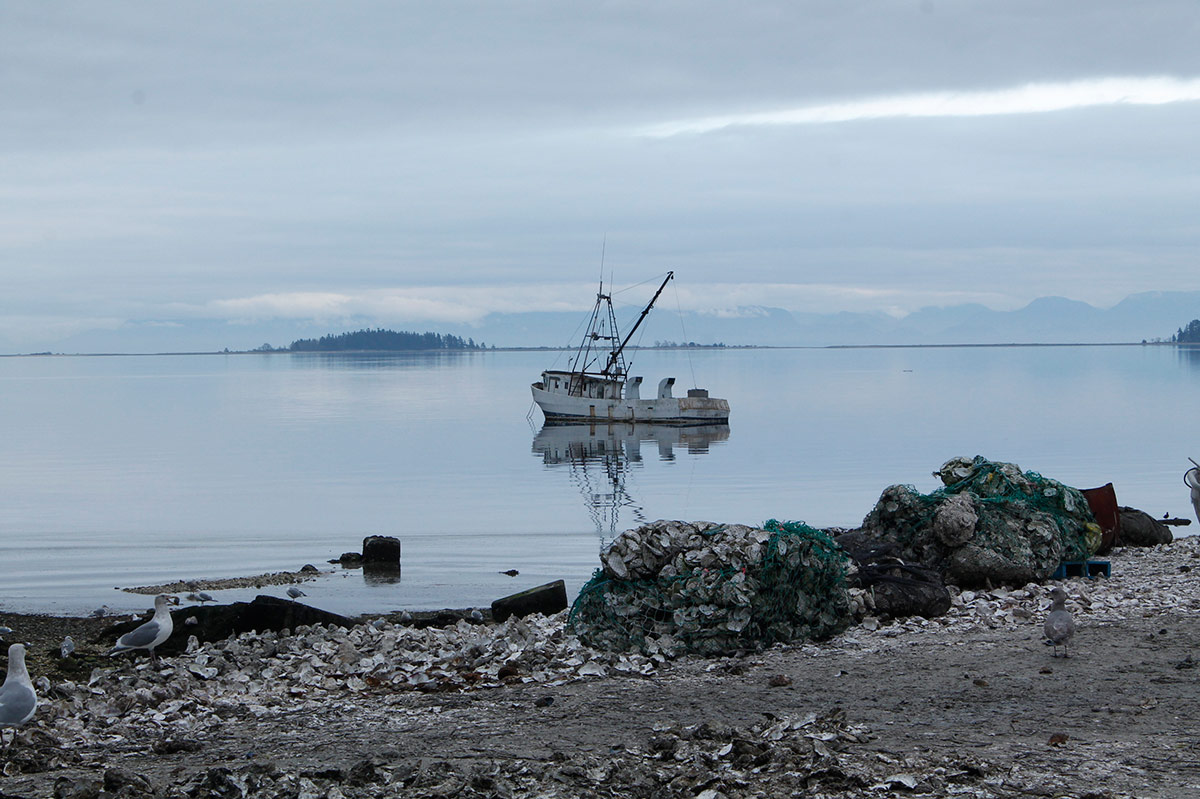
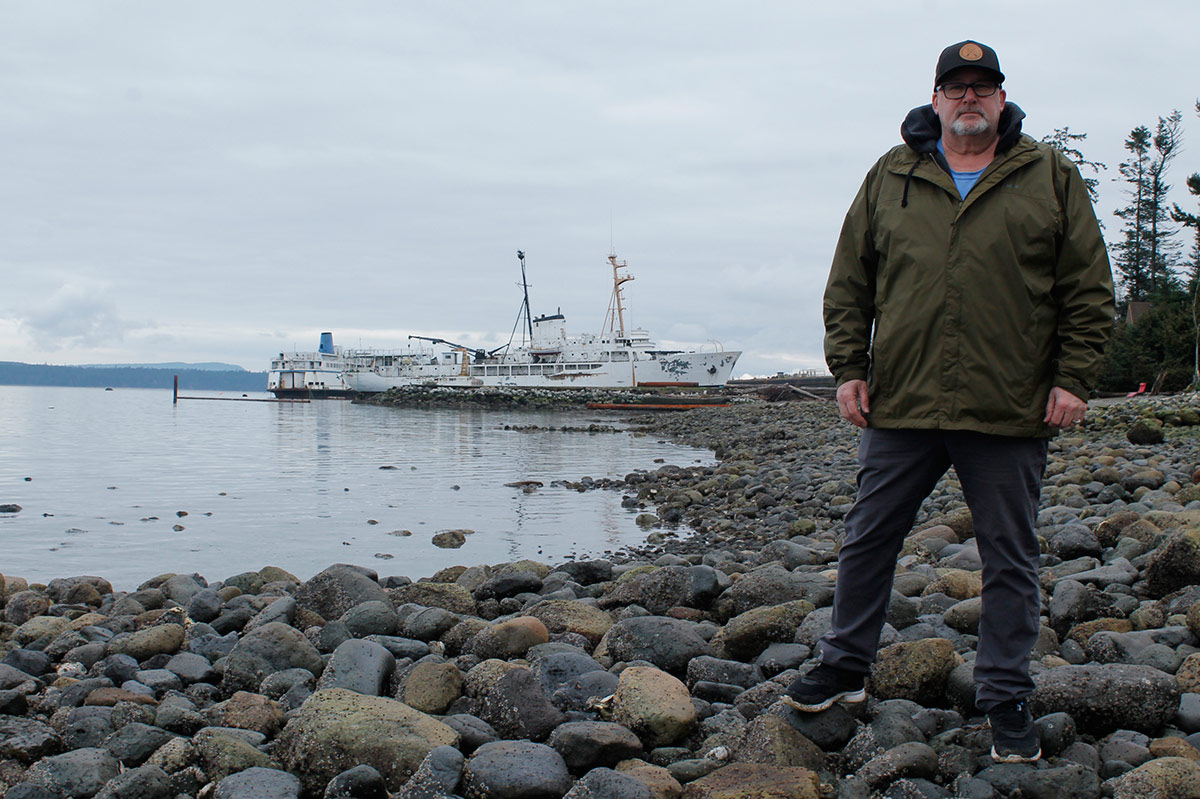
Ship breaking is what happens when ships die. It’s the process of taking apart any vessel, of any type and any size, and sorting the materials into recyclable scrap or garbage, according to the NGO Shipbreaking Platform, an international organization with 16 years of experience promoting a clean, safe and just industry and tracking and denouncing dangerous practices.
Ship breaking is a vital industry that recycles staggering amounts of steel, the organization notes. But it’s also one of the most hazardous industries in the world.
Which is why it might be surprising to hear that Canada doesn’t have any ship breaking regulations.
That’s both a neutral and a bad thing, depending on who you talk to.
Opponents say a lack of regulations can allow for bad actors to set up shop and do quick and dirty business before regulators notice what’s going on.
But a 60-year-old Canadian ship breaking company says it operates just fine without specific regulations, because it has to follow other, overlapping regulations around shipping, towing and handling hazardous materials, for example.
In an email to The Tyee, Transport Canada said regulations are under consideration, mentioning a three- to five-year timeline.
But that’s moving too slow, according to opponents, who say Canada could adopt the most stringent international regulations tomorrow if it wanted to.
‘An environmental disaster waiting to happen’
Does Canada need regulations? To untangle the question, it’s necessary to examine the risks posed by ship breaking.
It’s one of the most hazardous industries in the world because a lot of ship breaking happens in countries with poor environmental and labour laws, says Nicola Mulinaris, senior communications and policy advisor with the NGO Shipbreaking Platform.
Around 70 per cent of the world’s ship breaking happens on the beaches of India, Pakistan and Bangladesh, making up 90 per cent of industry’s gross tonnage with 400 to 600 vessels scrapped annually, Mulinaris says.
Old ships contain asbestos; heavy metals like mercury and lead; polychlorinated biphenyls, or PCBs; carcinogenic polycyclic aromatic hydrocarbons, or PAHs; contaminated bilge water, and ballast water containing sediment and bio-organisms, he says. These toxins affect both employees and their families because things like asbestos can be carried home on clothes.
“It depends on the type of vessel and when it was built but basically every floating vessel that’s reached the end of its life is considered hazardous material,” he says.
The industry also suffers fatalities due to falls, fires, explosions and falling debris. NGO Shipbreaking Platform’s website lists 429 deaths and 344 injuries since 2009 — but that number is likely much higher due to underreporting by companies, Mulinaris says.
It’s these risks that are raising hackles in Rewcastle’s neighbourhood, where the neighbours banded together and formed the Concerned Citizens of Baynes Sound to push back against what they view as a threat to public health and the environment. The group, made up of roughly 40 people, has been advocating for the government to adopt the highest international regulations around ship breaking, which they say would effectively shut down the Union Bay operation.
CCOBS members have around 150 years of experience between them when it comes to tracking, following and enforcing Canadian regulations, Rewcastle says — which means they can clearly see how the Union Bay ship breaking operation’s environmental protections are “boiler plate” and its containment strategies are “minimal.”
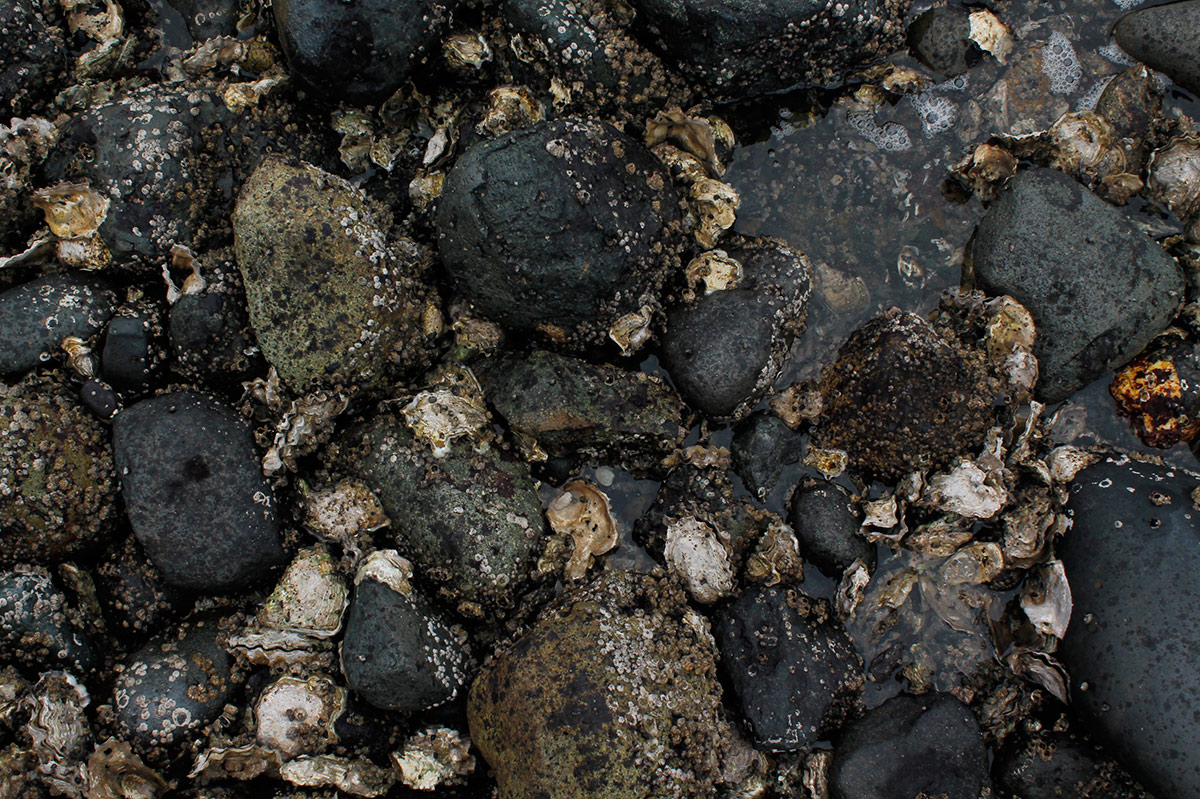
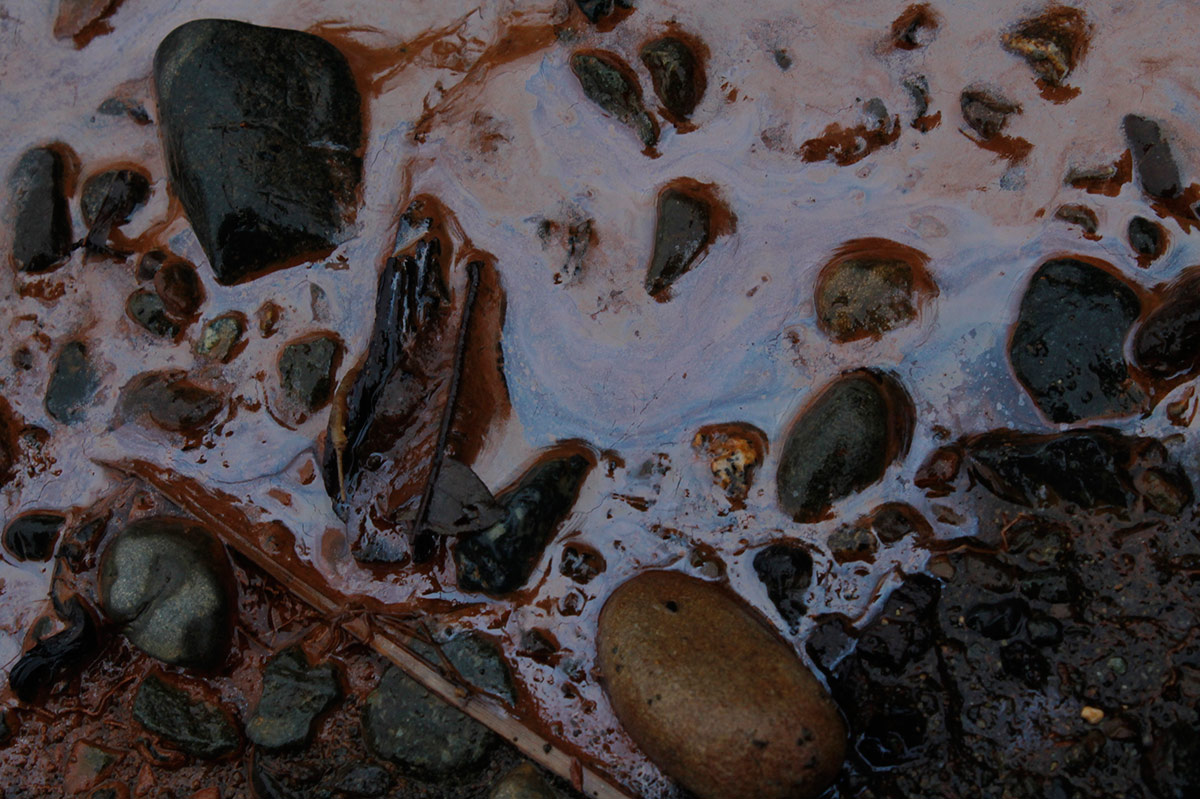
The K’ómoks First Nation, whose traditional unceded territories include Union Bay, also strongly oppose the ship breaking operation.
The nation declined an interview with The Tyee, instead pointing to a December 2021 press release that called the business “an environmental disaster waiting to happen.” It notes the business is in a “shellfish rich and sensitive ecological area” that supports important shellfish stocks for the nation’s economic, food, social and ceremonial purposes.
It notes the environmental management plan’s language is very broad and “does not make any specific commitment to following federal or provincial environmental standards.”
“Until it’s too late and an actual environmental impact happens, there is nothing holding the company accountable, just voluntary adherence to the guidelines they’ve set for themselves,” says Hegus Nicole Rempel. (Hegus means “Chief” in Éy7á7juuthem, or Comox language.)
CCOBS members have also raised concerns about how Deep Water is breaking ships over permeable muddy ground, a process that has been documented by drone footage. Vessels are also stored on site on top of a large asphalt surface.
CCOBS members say Deep Water Recovery has had vessels moored on site since December 2020. The company website says the business was incorporated in 2016.
The Tyee requested a tour of the facility but was refused.
Corporate registry documents list Deep Water Recovery Ltd.’s directors as Andrew Bohn, based in Port Vila, Vanuatu, and Mark Jurisich, based in Courtenay, B.C.
Vanuatu is known as a tax haven, and a flag of convenience by the International Transport Workers’ Federation, the world’s leading transport authority.
In an interview with The Tyee Jurisich said he started the ship breaking business because he couldn’t find anywhere to recycle two U.S. ships he’d brought into Canadian waters, after a last-minute deal fell through.
Jurisich declined to say who the ship breaking contract was with, but noted the ships had been stored on the Fraser River.
In February 2021 the Vancouver Fraser Port Authority got an injunction from the B.C. Supreme Court to shut down a ship breaking operation on the Fraser because, it argued, ship breaking is environmentally dangerous and should only happen in a dry dock or on land.
Jurisich says when his initial ship breaking contract fell through he’d asked Seaspan ULC for advice and they said they had the same problem — there was nowhere to break ships in B.C.
He says he then made a deal with Seaspan to break as many of their barges as he could in 36 months. The plan after that was to “move on.”
“We are not here to set up a business,” he says.
Jurisich says the Deep Water crew of five employees, including himself, have dismantled nine barges so far, and repaired one. He also confirmed some ship breaking happens over a permeable surface, but that any work on the lower part of the vessel, or the hull, happens over asphalt with spill mitigation measures in place.
When The Tyee asked Seaspan to confirm the contract with Deep Water, a company spokesperson said Seaspan enters ship breaking contracts with “domestic recyclers” on a ship-by-ship basis, and does not “send or sell barges overseas to be broken up.” The spokesperson confirmed that a Seaspan barge is currently being dismantled at Deep Water.
A BC Ferries vessel, the Queen of Burnaby, is also moored at Deep Water. A BC Ferries spokesperson says the ship was retired from the fleet in 2017 and is being “temporarily moored” at Union Bay “while we actively evaluate options for recycling the ship.” When asked where BC Ferries' vessels end up for ship breaking, the spokesperson said British Columbians “can expect more ferries to be recycled in B.C. as they are retired.”
An ‘ass-backwards’ government response
Ship breaking doesn’t have to be a risky business, says Jordan Elliott, president of Marine Recycling Corp.
Elliott is a third-generation ship breaker. His company more or less is the ship breaking industry in Canada, he says. They have two established shipyards, one in Ontario and one in Nova Scotia, and do mobile wreck removal, salvage and environmental remediation all throughout the country. The company is currently building a new shipyard in Port Mellon, B.C., just north of Gambier Island in Howe Sound. Marine Recycling Corp.’s shipyards keep up with domestic ship breaking demand, contracting with government organizations like Fisheries and Oceans Canada, the coast guard, Transport Canada, the Vancouver Fraser Port Authority and more, he says.
A lot of the large ships, like transport freighters, that Canadians see near our ports are foreign-owned, so they wouldn’t come here to be recycled, he said.
Elliott says his employees are highly skilled, highly paid and have to follow one and a half times the regulations that ship builders do.
In the 60 years his family has been breaking ships, Canada has not had to create regulations to promote a clean, safe and just industry because the company has been careful to do that on their own, Elliott says.
Once the company’s Port Mellon facility is up and running, his company hopes to provide vessel recycling for B.C. companies like BC Ferries and Seaspan.
When searching for a new location Elliott says he looked at Union Bay, but noted the property wasn’t properly zoned, so he didn’t set up shop there.
This conflicts with what Jurisich told The Tyee about Deep Water: the company chose the Union Bay location, he says, because his attorneys said it had the “correct zoning” for ship breaking.
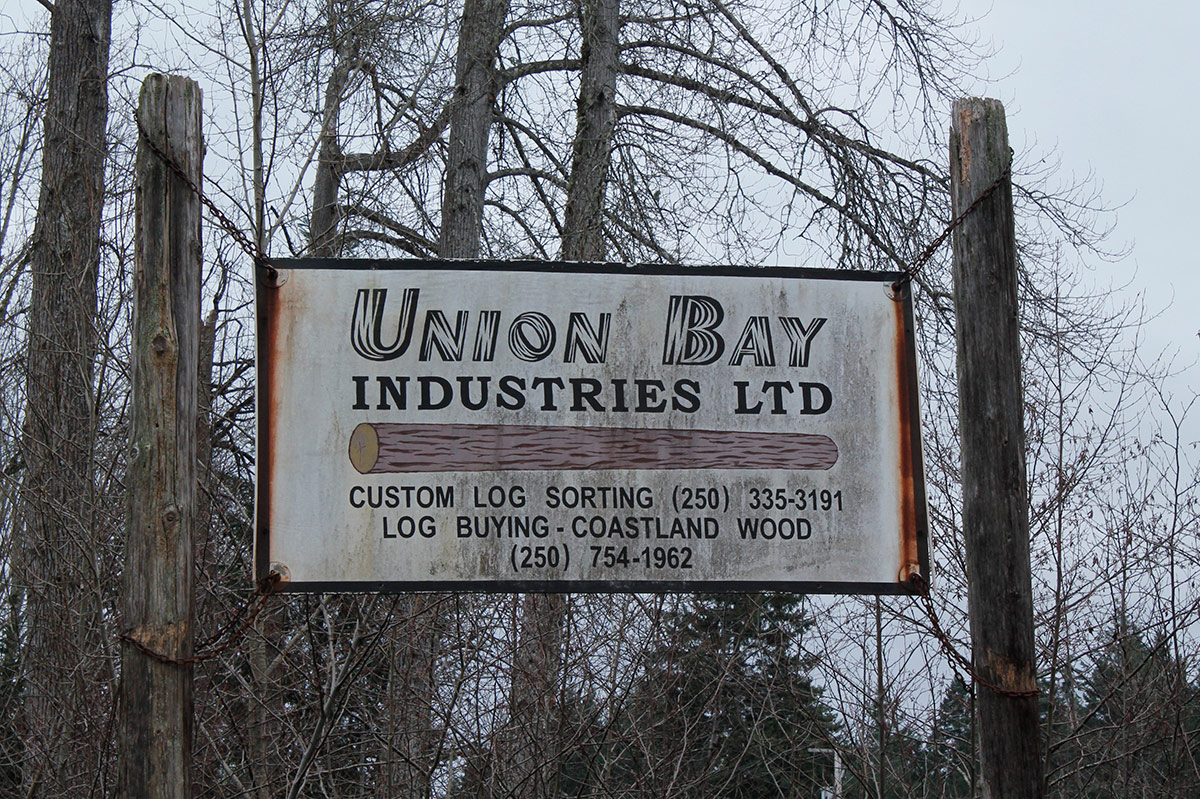
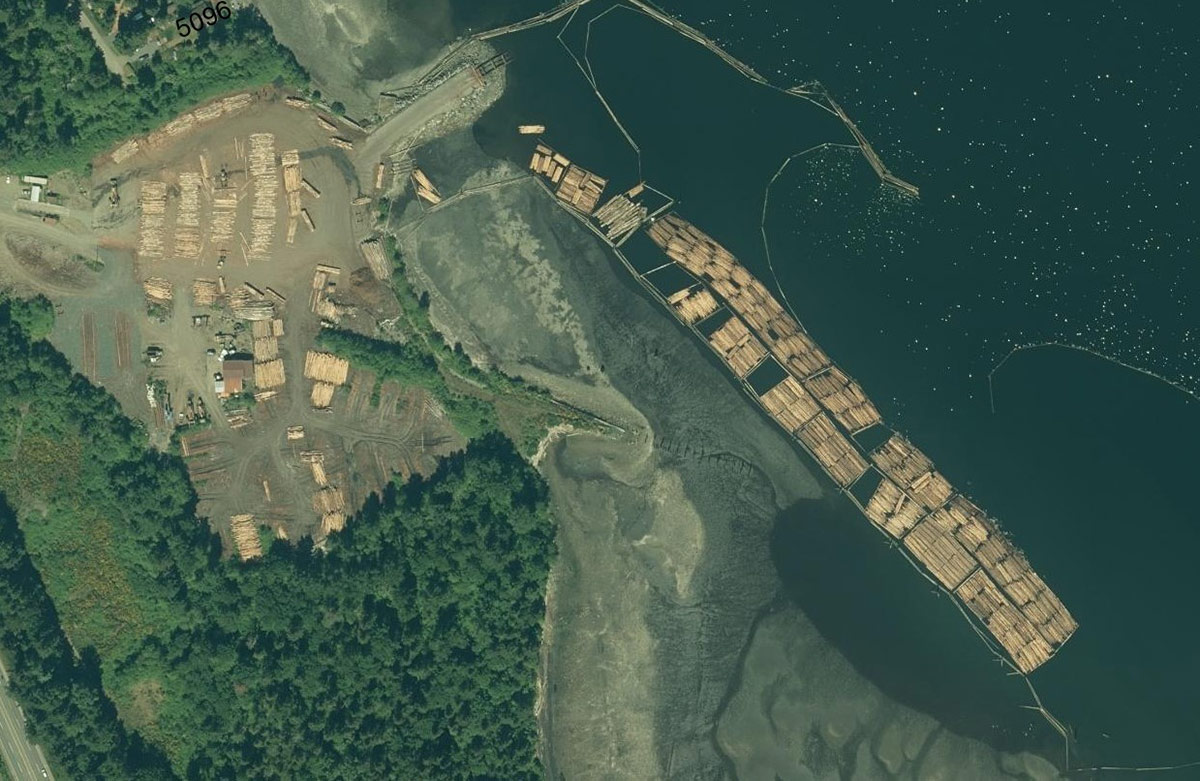
Zoning is important when talking about Deep Water’s operation, because responsibility for policing the pop-up business has fallen to the local government, the Comox Valley Regional District.
It’s tricky for a regional government to police industry because it can’t issue business licences, and environmental concerns are “almost exclusively” in the purview of the province, says Daniel Arbour, director of Comox Valley Regional District Area A, which covers Baynes Sound and Denman and Hornby islands. One of the only tools regional governments have are zoning regulations, where you lay out what a business can and can’t do in an area, he says.
Different parts of ship breaking fall under various levels of government. Ships moored offshore are under federal jurisdiction, the foreshore belongs to the province and upland is CVRD’s area.
Government’s job is to present a united voice when dealing with an industry as hazardous as ship breaking, says Carla Conkin, an environmental regulatory lawyer. Conkin has been retained as CCOBS’s legal counsel.
The government approach to Deep Water has been “ass-backwards” and unco-ordinated, she says.
In October 2021 the province issued a foreshore lease to Deep Water that allows them to drag ships over the beach and onto dry land. This lease expires in September 2038.
In mid-February the CVRD ruled ship breaking was non-compliant with zoning bylaws. The marine industrial zoning allows for barge repair, but not dismantling.
In an email, Transport Canada said the province, not the federal government, is responsible for permitting the breaking and dismantling of ships.
This “polarized response” will ultimately benefit the company, Conkin says.
So what happens now?
The CVRD is heading to the B.C. Supreme Court to ask for an injunction to shut down Deep Water’s business. This is the same approach the Vancouver Fraser Port Authority took with a different company in February 2021.
In an email to The Tyee, the Ministry of Forests, Lands, Natural Resource Operations and Rural Development said it was aware the CVRD was seeking an injunction.
The Tyee requested an interview with Forest Minister Katrine Conroy and the local MLA Josie Osborne, who is also the newly appointed minister of Land, Water and Resource Stewardship, but the ministers were not made available.
CVRD director Arbour says he is unable to talk about Deep Water because the matter is now before the courts.
Conkin says it looks like the province didn’t “do its homework” when approving Deep Water’s foreshore lease. She adds the ship breaking business never should have been allowed to set up — but now that it’s here the government needs to introduce regulations that hold ship breaking to the highest international standards.
Earlier this week the World Wildlife Fund Canada, Stand.earth, Georgia Strait Alliance, NGO Shipbreaking Platform and Basel Action Network sent an open letter to the province, calling on the government to stop all ship breaking in Union Bay. The letter notes how unregulated ship breaking can create “carcinogenic air pollution, loss of marine biodiversity and soil contamination,” and that “vessels can only be recycled in a safe and environmentally sound manner at proper industrial sites that ensure a contained environment.”
A global toxic trade economy
Introducing regulations could do more than just improve domestic operations, says Mulinaris.
There are three international conventions regulating ship breaking: the Basel Convention, the Hong Kong Convention and EU Ship Recycling Regulation.
The Basel Convention, which Canada ratified in 1992, is designed to stop developed countries from shipping hazardous waste, including old ships, to developing countries. But enforcement is poor and many ships still end up in international scrap yards, Mulinaris says.
Elliott of Marine Recycling Corp. says it would be a good thing to prohibit ship exports, but notes that vessels owned and operated by the government are already broken down domestically. Commercial fleets, like BC Ferries, can be sold internationally, he says.
This means Canada is feeding into the toxic trade economy, Mulinaris says.
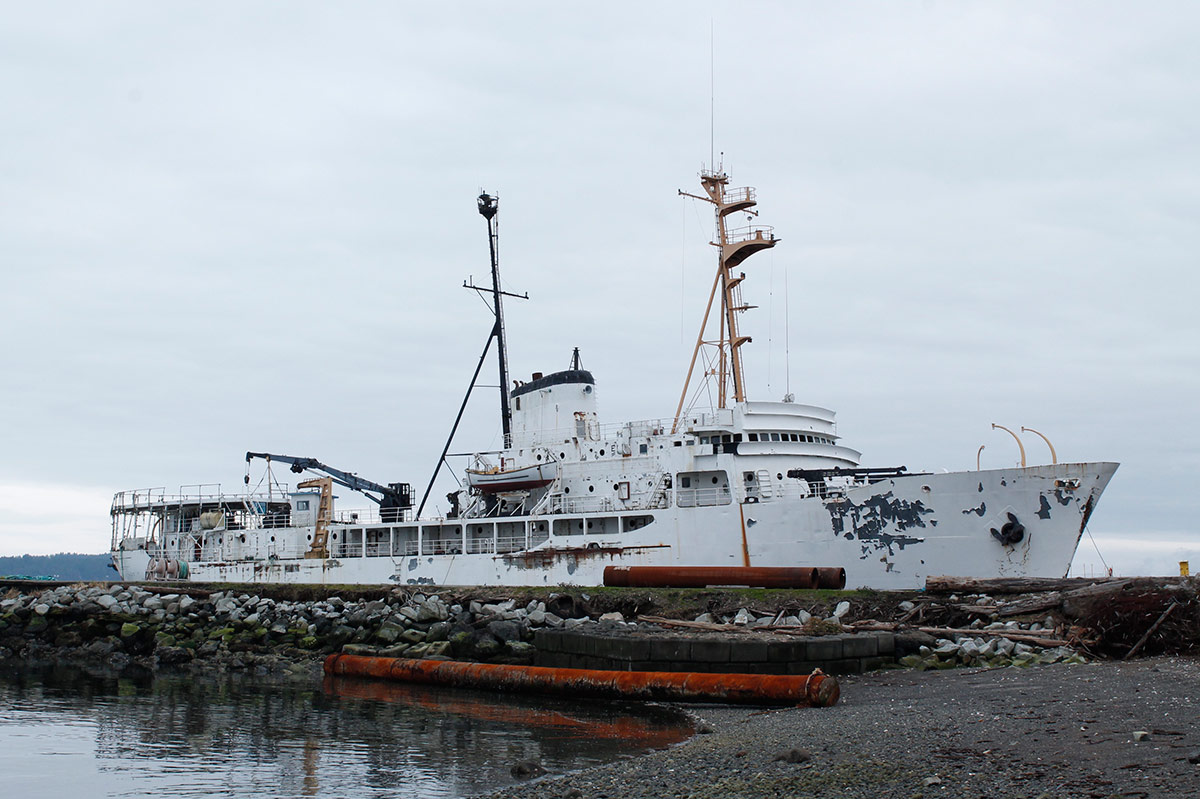
Canadian Great Lake freighters are often shipped to Turkey to be broken down, Elliott says. While Turkey has better working conditions than India, Pakistan and Bangladesh, its workers are on strike demanding reasonable pay and PPE. In addition, sending a vessel designed for calm lake waters over open ocean at the end of its life is like “trying to sail a paddle board across the ocean.”
“A lot of ships sink,” he says.
Shipping companies can get around the Basal Convention by declaring one country as their destination and then changing their route once they’re in open ocean, Mulinaris says.
India, Pakistan and Bangladesh pay around $600 per tonne of steel, Mulinaris says, whereas opting for a clean, safe and just ship breaking operation drops the price by $300 to $400 per tonne of steel.
In Canada $300 per tonne is a strong price, but that could easily drop to $150 per tonne with market fluctuation, Elliott says.
A Great Lake freighter is around 223 metres long, 23 metres wide and made out of 10,000 tonnes of steel, Elliott says. A ship this size would bring in $6 million in South Asia, and $1.5 million to $3 million domestically.
Around 12 per cent of Bangladesh’s ship breaking workforce are minors, aged 14 to 17, Mulinaris says. The legal age of employment in Bangladesh is 14, but minors are prohibited from working night shifts, or in ports or factories. In the ship breaking yards minors often work at night, because they have school during the day — and can support their families by earning $3 per day, considered a highly competitive wage in Bangladesh, Mulinaris says.
In an interview, NDP MP for Courtenay-Alberni Gord Johns said it was “absolutely appalling” that any Canadian ships could feed into exploitive markets.
“We need to be more responsible for all of our waste, including vessels at end of life,” he says. That means introducing regulations.
“We have a robust ship building industry emerging, we could take on a lot of ship breaking too — it could be a big opportunity,” he says.
To help domestic businesses be internationally competitive Johns says he’d support an export tariff. He notes how BC Ferries used to have a 25 per cent import tariff to encourage ships to be built domestically, and when Ottawa scrapped the tariff jobs were shipped overseas to markets with cheap labour and poor environmental regulations.
In an email, Transport Canada said it is “currently analyzing” ways to strengthen domestic legislation and regulations around ship breaking and is considering signing on to the Hong Kong Convention, which should come into force internationally within the next three to five years.
But that wouldn’t be adopting the highest international standards, warns Mulinaris. The Hong Kong Convention was strongly industry-influenced when it was created, he added. It allows for ships to be broken on beaches that are flooded with tides twice daily, and doesn’t control for downstream waste management.
The best international standard is the EU Ship Recycling Regulation which is a copy-paste of the Hong Kong Convention but includes downstream waste management, worker rights and safety, and bans beaching by saying all operations should be done with full containment, Mulinaris says.
The letter several environmental organizations sent to the province earlier this week similarly called on Canada to adopt federal regulations based on the Basel Convention and European regulations.
Further enforcement
Back on the beaches of Union Bay a deep booming sound rings out. Surprised, a small flock of sandpipers takes to wing, crying out in tiny peeping noises as they fly away.
Rewcastle says these loud noises are frequent but that a noise complaint with the CVRD found Deep Water wasn’t doing anything wrong.
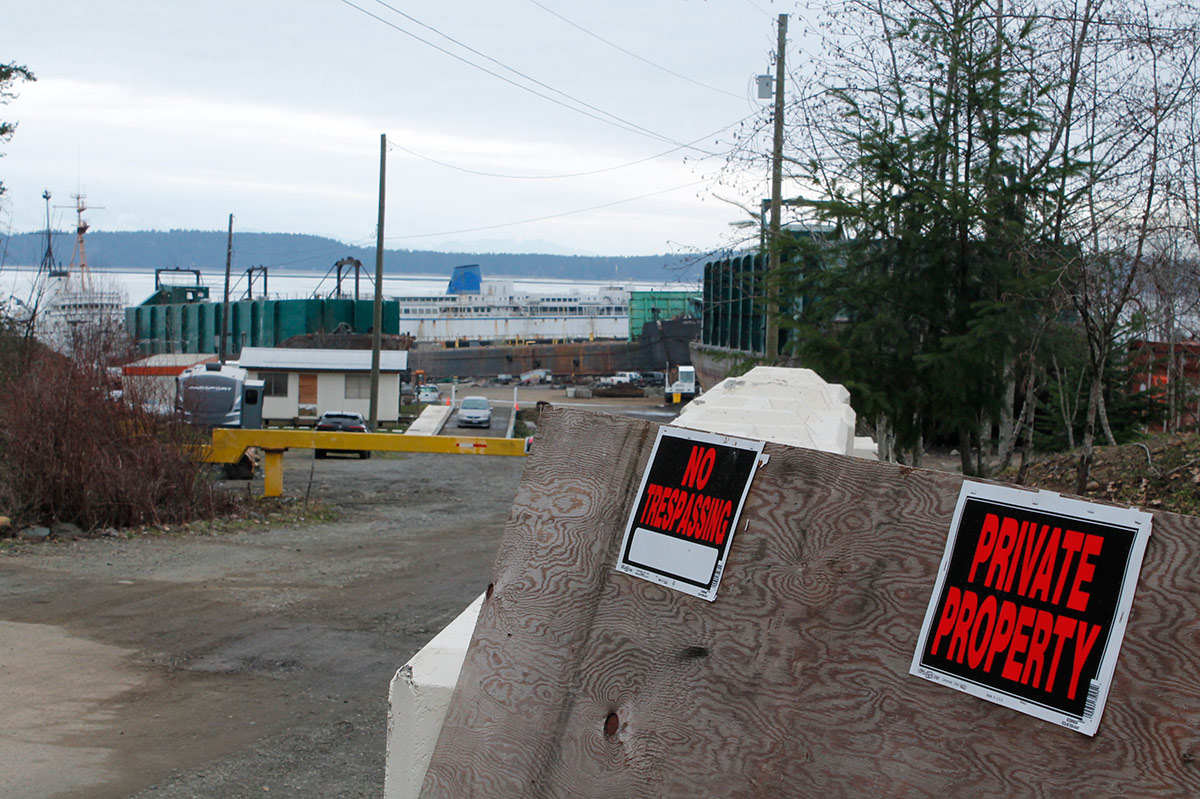
A handful of CCOBS members have gathered on the beach and stand looking at the ships moored at Deep Water. Despite the small patch of sand at the high-tide mark, this beach is largely rocky, with viciously sharp oysters, barnacles and muscles clinging to every surface.
CCOBS members have worked tirelessly to advocate for regulations that would shut down the ship breaking business that pulls barges over the beach, a process that likely scrapes lead paint off the hulls and discharges it into the waters where the mollusks live and grow.
The Tyee reached out to several oyster farmers in the area to ask if they were worried the ship breaking operation could impact their business. One local oyster farm owner in the area, who asked to not be identified, says he’s not worried because barges, which are the only vessels Deep Water has cut up so far, do not contain hazardous materials. “There’s no asbestos there, what would that be doing on a ship?” he says. “It just needs to float... they’re just made of steel and a wooden frame.” At another oyster farm a woman who wouldn’t give her name said she was in support of the ship breaking business. Emergency service, she said, would be “on top of it right away” if there was ever a hazardous material spill.
Deep Water’s Jurisich doesn’t seem deterred by CCOBS advocacy. The day after the CRVD found his business non-compliant he hauled a new barge up onto land and got to work. He dismisses CCOBS’s concerns as NIMBY-ism and says the CVRD is only getting involved because it’s an election year, and demonizing his business makes politicians look good.
He also says he “has a plan of action” to argue with the CVRD as it seeks an injunction, and that bylaws only offer businesses “general guidelines” around what they can and cannot do.
CCOBS members say they want the CVRD to use other enforcement measures, including fining Deep Water $10,000 per day for every day it operates after being found non-compliant.
Canada could mirror EU regulations and adopt them tomorrow if it wanted to, Rewcastle says.
Until then, CCOBS members say they’re dug in and prepared to keep fighting with everything they’ve got. After all, one member says with an impish smile, “a small group of committed citizens is the only thing that has ever changed the world.” ![]()
Read more: Labour + Industry, Environment



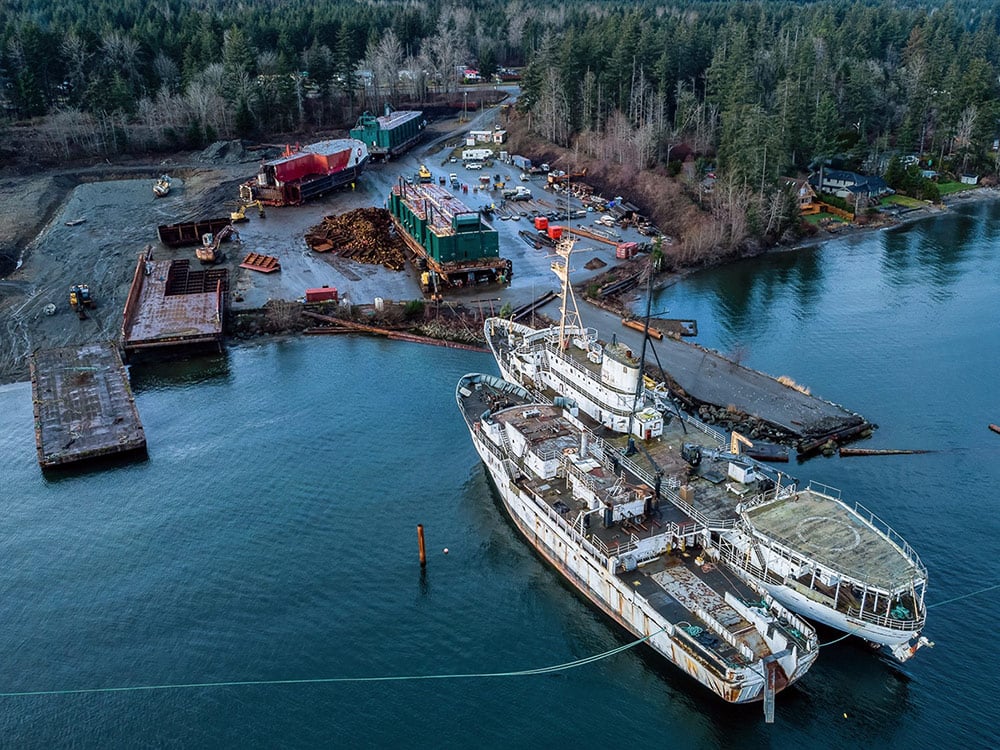












Tyee Commenting Guidelines
Comments that violate guidelines risk being deleted, and violations may result in a temporary or permanent user ban. Maintain the spirit of good conversation to stay in the discussion.
*Please note The Tyee is not a forum for spreading misinformation about COVID-19, denying its existence or minimizing its risk to public health.
Do:
Do not: